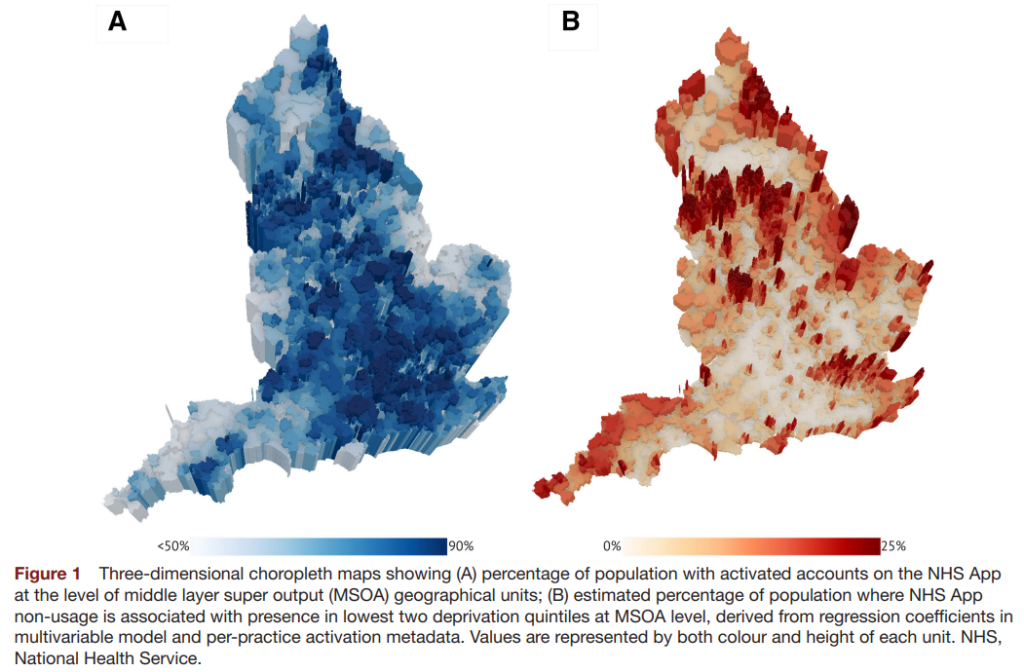
The Rise of Digital Health Tools and the Ensuing Inequality
The digital age has seen the healthcare sector evolve at an unprecedented pace. Digital health tools have become integral components of modern healthcare, with the potential to significantly improve patient outcomes. However, alongside this promising development, concerns about digital health inequality are growing. These inequalities, often tied to socioeconomic and demographic factors, can hinder access to digital health services for the most vulnerable populations.
The Scale of Digital Inequality in the NHS
Recent research has revealed a substantial digital inequality across socioeconomic strata within England’s National Health Service (NHS). The study found that deprivation in the lowest two quintiles is associated with reduced uptake of the NHS app by an estimated 4.27 million patients across England. These findings pose a significant challenge as the NHS aims to make apps the ‘front door’ to healthcare, potentially exacerbating existing healthcare access inequalities.

Addressing Digital Health Inequality: A Three-Pronged Approach
In light of these findings, the study proposes three key recommendations. Firstly, digital transformation must be context-specific, with infrastructure, education, and engagement tailored to local populations. The second point is that although it may be impossible to achieve perfect digital equality, digitally improved channels have the potential to generate efficiency savings that can be channeled to populations that are vulnerable and marginalised. Last but not least, equality should be incorporated into evaluations of digital technology, and data should be made public in order to track differences in their adoption and outcomes.
The Immediate Need for Action to Prevent the Worsening of Existing Equity Gaps
This study’s results apply to the NHS and other health systems undergoing fast digital transformation. If we don’t implement solutions targeting disadvantaged populations, digital health disparity might worsen. Therefore, we urgently need quick, unique actions to ensure everyone can access digital health tool benefits.
Digital health technologies hold vast potential to improve healthcare, but we must tackle the increasing inequity in digital health. We can achieve a more inclusive digital healthcare future by adopting a strategy specific to each context, redirecting efficiency savings to vulnerable groups, and including equity in our evaluations of digital technology.
